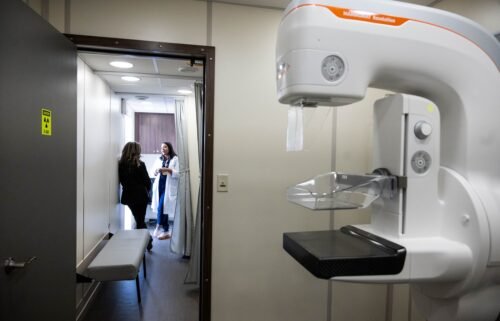Danish researchers use machine learning to predict aspects of individual lives, including when someone might die
(CNN) — Researchers in Denmark say they have used powerful machine-learning algorithms to accurately predict certain aspects of human lives, including how early someone is likely to die.
Their study, published this week in the journal in Nature Computational Science, details how a machine-learning algorithm model called life2vec predicted the outcome of a person’s life and their actions when presented with highly specific data about them.
With that data, “we can make any kind of prediction,” said Sune Lehmann, the study’s lead author and a professor at the Technical University of Denmark. However, the researchers note that it is a “research prototype” and cannot perform any “real-world tasks” in its current state.
Lehmann and his co-authors used data from a national register in Denmark detailing a diverse grouping of 6 million people. They included information from 2008 to 2016 related to major aspects of life such as education, health, income and occupation.
The researchers adapted language processing techniques and generated a vocabulary for life events so life2vec could interpret sentences based on the data, such as “In September 2012, Francisco received twenty thousand Danish kroner as a guard at a castle in Elsinore” or “During her third year at secondary boarding school, Hermione followed five elective classes.”
The algorithm then learned from that data, Lehmann says, and was able to make predictions about certain aspects of people’s lives, including how they might think, feel and behave, and even whether the person might die in the next few years.
To predict how early someone might die, the team used data from January 1, 2008 to December 31, 2015 on a cohort of over 2.3 million people between 35 and 65 years old. This group was selected because mortality in that age range is more difficult to predict, Lehmann said.
Life2vec used the data to infer the probability of a person surviving the four years after 2016.
“To test how good [life2vec] is, we pick a group of 100,000 individuals where half survive and half die,” Lehmann said. The researchers knew which people had died after 2016, but the algorithm did not.
Then, they put it to the test. They had the algorithm make individual predictions on whether or not someone lived past 2016. The results were impressive: the algorithm was correct 78% of the time.
Life2vec also outperformed other state-of-the-art models and baselines by at least 11% by predicting mortality outcomes more accurately, the report said.
People who were male were more likely to die after 2016. Being a skilled worker like an engineer or having a diagnosis of a mental health problem such as depression or anxiety also led to an earlier death, the researchers found. Meanwhile, being in a managerial position or having a high income often pushed people toward the “survive” column.
The research had several limitations, however. “We note that the experiments were not randomized, and the investigators were not blinded to allocation during experiments and outcome assessment,” the report notes.
The researchers looked only at data across an eight-year period, and there may be sociodemographic biases in the sampling even though every person in Denmark appears in the national registry.
“If someone does not have a salary – or chooses not to engage with the healthcare systems – we do not have access to their data,” they said.
The study was conducted in a wealthy country that has a strong infrastructure and health care system, the authors also note. It is unclear whether life2vec’s findings can be applied in other countries like the United States, given their economical and societal difference.
Lehmann says he knows that the algorithm sounds “ominous and crazy, but it’s actually something that there’s been a really a lot of work on, especially driven by insurance companies.”
Dr. Arthur Caplan, the head of the Division of Medical Ethics at New York University’s Grossman School of Medicine, agrees that insurance companies will be eager to get ahead of consumers when models like life2vec become more commercial.
“This is going to make it harder down the road to sell insurance,” he said. “You can’t run insurance against risk if everybody knows exactly what the risks are.”
However, Caplan, who was not involved in the new research, notes that life2vec does not predict at what age a person will die or how. For example, an algorithm can’t predict if a person is going to be killed in a car accident.
Caplan expects more advanced prediction models to appear in as little as five years.
“We’ll have better ones with bigger databases that will give suggestions of what to do to prolong your life,” he said.
Ultimately, Caplan says, using artificial intelligence to predict when we might die removes the one aspect from our lives that keeps it interesting: mystery.
“We’re worried about the robots taking over the world and deciding they don’t need us,” he said. “What we need to worry about is the robots manipulating information and being able to predict a lot about our behavior that we wind up having lives that are so predictable that they take some of the value out of living.”
The-CNN-Wire
™ & © 2023 Cable News Network, Inc., a Warner Bros. Discovery Company. All rights reserved.



